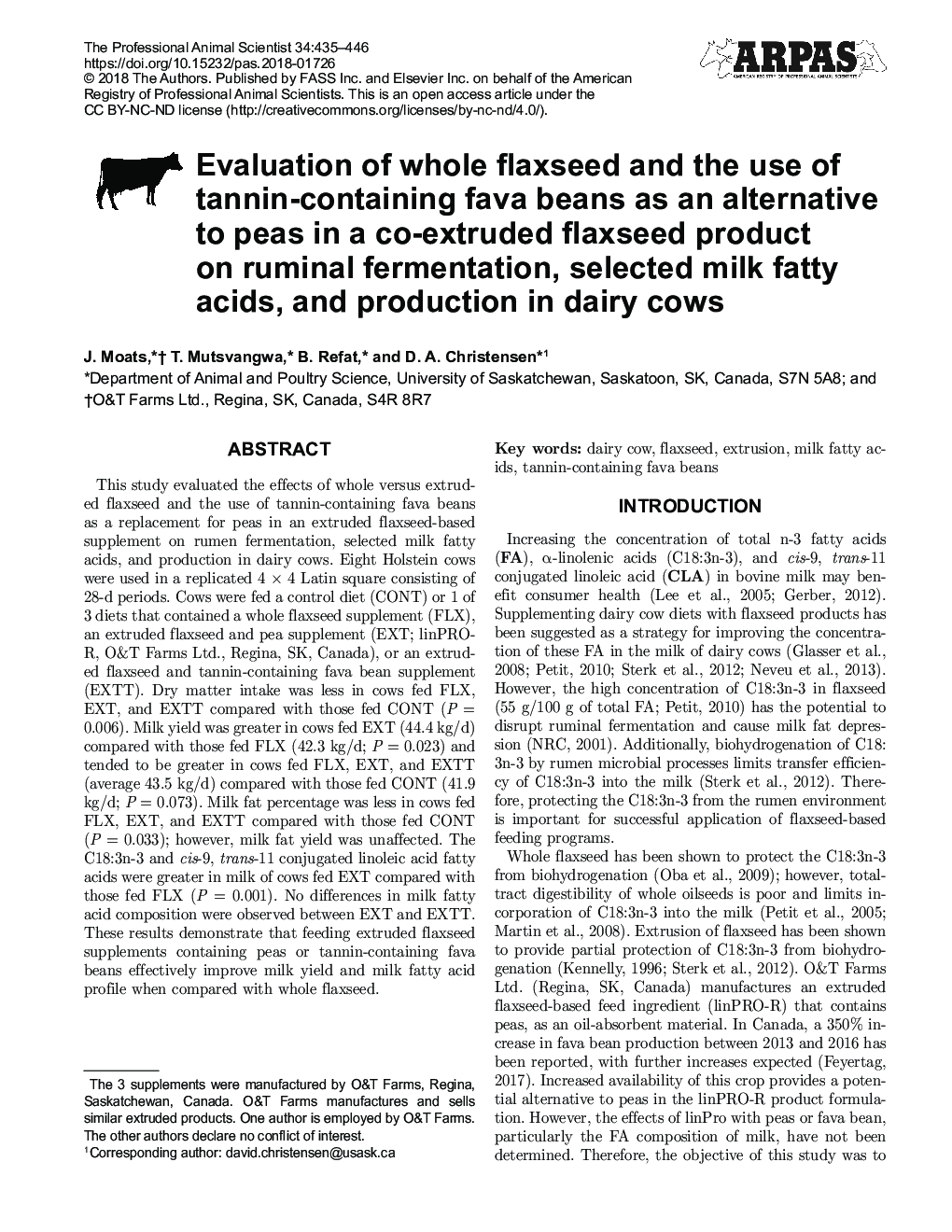| Article ID | Journal | Published Year | Pages | File Type |
|---|---|---|---|---|
| 10158130 | The Professional Animal Scientist | 2018 | 12 Pages |
Abstract
This study evaluated the effects of whole versus extruded flaxseed and the use of tannin-containing fava beans as a replacement for peas in an extruded flaxseed-based supplement on rumen fermentation, selected milk fatty acids, and production in dairy cows. Eight Holstein cows were used in a replicated 4 Ã 4 Latin square consisting of 28-d periods. Cows were fed a control diet (CONT) or 1 of 3 diets that contained a whole flaxseed supplement (FLX), an extruded flaxseed and pea supplement (EXT; linPRO-R, O&T Farms Ltd., Regina, SK, Canada), or an extruded flaxseed and tannin-containing fava bean supplement (EXTT). Dry matter intake was less in cows fed FLX, EXT, and EXTT compared with those fed CONT (P = 0.006). Milk yield was greater in cows fed EXT (44.4 kg/d) compared with those fed FLX (42.3 kg/d; P = 0.023) and tended to be greater in cows fed FLX, EXT, and EXTT (average 43.5 kg/d) compared with those fed CONT (41.9 kg/d; P = 0.073). Milk fat percentage was less in cows fed FLX, EXT, and EXTT compared with those fed CONT (P = 0.033); however, milk fat yield was unaffected. The C18:3n-3 and cis-9, trans-11 conjugated linoleic acid fatty acids were greater in milk of cows fed EXT compared with those fed FLX (P = 0.001). No differences in milk fatty acid composition were observed between EXT and EXTT. These results demonstrate that feeding extruded flaxseed supplements containing peas or tannin-containing fava beans effectively improve milk yield and milk fatty acid profile when compared with whole flaxseed.
Related Topics
Life Sciences
Agricultural and Biological Sciences
Animal Science and Zoology
Authors
J. Moats, T. Mutsvangwa, B. Refat, D.A. Christensen,
